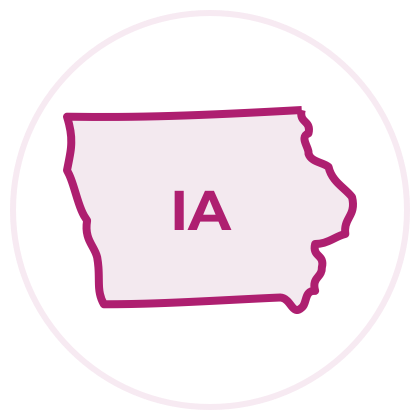Pre-Service Training
Prospective adoptive parents, including relatives who are planning to adopt a child in their care, must attend an orientation meeting and complete the National Training and Development Curriculum for Foster and Adoptive Parents (NTDC) training, which is 33 hours.
Families who want to foster or have a subsidized guardianship must become licensed. They must complete the NTDC training, as well as CPR and First Aid, Mandatory Reporter Training, Medication Management, Universal Precautions, Human Need for Belonging, and Reasonable and Prudent Parenting Standards, for a total of 39 hours.
As of July 1, 2025, a separate set of foster care standards were developed for relatives and fictive kin to be approved for kinship foster care and does not include requirements for pre-service training. Kinship families who wish to be considered for adoption for a specific child placed in their care may also have the pre-service training requirements waived.
Services Offered Through the State’s Post-Permanency Support Program
The Department of Health & Human Services (HHS) contracts with Four Oaks Foster Care and Adoption to provide statewide post-permanency services.
Services include:
The program served 3,086 adoptive and guardianship families in fiscal year 2024.
For more information, visit https://iowafosterandadoption.org/i-already-adopted/
Geographic Area Covered
All services are offered statewide. Four Oaks has staff statewide to serve families in all areas and many services are offered virtually to expand access. Four Oaks ensures enough staff are available to make home visits as necessary. Access to private therapists and community-based services is a struggle in more rural areas due to limited providers.
Eligible Population for the Overall Post-Permanency Program
Accessibility
The post-permanency program collaborates with tribal nations to ensure services are culturally responsive to the needs of Native American families. They offer specialized training, support groups, and outreach to support tribal families.
Four Oaks also offers specialized support groups for LGBTQ2S+ and kinship families.
HHS has entered into a memorandum of understanding (MOU) with one tribal nation currently to assist with child welfare services and are working on developing MOUs with other tribal nations in the state.
Outreach and Engagement
HHS shares a monthly list of new families receiving subsidy with Four Oaks. Four Oaks ensures both new and existing families receive a monthly e-newsletter and postal mail outreach every four to six months. The program also provides information as children reach different ages. All families who adopt Iowa children are provided with a brochure that outlines available post-adoption services after an adoption is finalized.
How the Post-Permanency Program Is Operated
Notes About Who Provides Which Service(s)
Four Oaks Foster Care and Adoption provides all post-permanency services statewide.
Adoption/Guardianship Assistance/Subsidy Review and Changes
Families can request a change in their subsidy agreement by submitting a request to HHS. Families are asked to provide documentation as to the need for the change.
HHS sends a letter to families when a child reaches age 17.5 that outlines the eligibility criteria for continued subsidy eligibility. The letter also explains the process for families to make application for continued subsidy to HHS.
Tracking Adoption/Guardianship Discontinuity
Information not available
Post-Permanency Program Spending (FY 2024)
Funding Sources for the Post-Permanency Program (FY 2023)
- Title IV-B, Part 2 (Promoting Safe and Stable Families/PSSF)
- State funds


